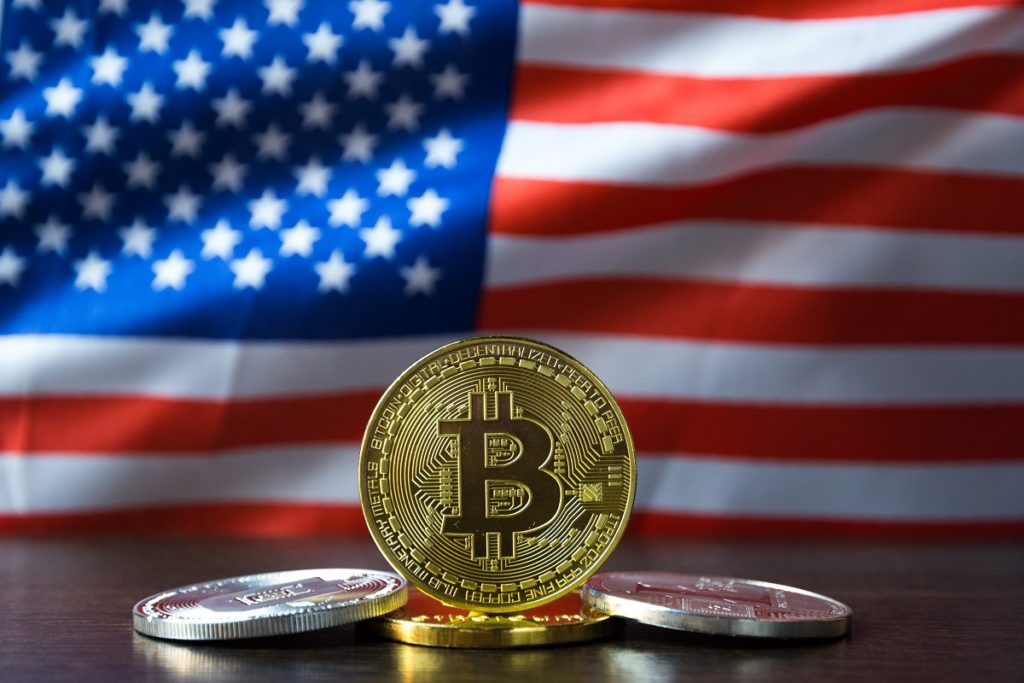Bitcoin’s Future Could Depend on U.S. Presidential Election Outcome, Analysts Say
10.09.2024 12:00 1 min. read Alexander Stefanov
Analysts at Bernstein Research view Bitcoin as closely tied to the outcome of the upcoming U.S. presidential election, dubbing it a “Trump trade.”
They suggest that if Donald Trump wins, Bitcoin might surge to between $80,000 and $90,000 by the end of the year. Conversely, if Kamala Harris prevails, they foresee Bitcoin dropping below $50,000 and potentially revisiting the $30,000 to $40,000 range.
The analysts, Gautam Chhugani, Mahika Sapra, and Sanskar Chindalia, argue that the crypto industry has received more support from Trump’s camp compared to Harris’s.
While Trump has openly advocated for making the U.S. a leader in Bitcoin and crypto, Harris has not addressed the issue in her public statements.
Recent regulatory actions against major crypto firms have strained the industry, though Bitcoin has managed to rise 112% in the past year despite these challenges. A supportive regulatory environment could enhance institutional interest in digital assets and drive innovation.
Current betting odds show Trump leading Harris, though national polling remains uncertain. Bernstein’s analysts suggest that those invested in crypto may be betting on a Trump victory.
-
1
Bitcoin ETF Inflows Hit $2.2B as Market Calms After Ceasefire
25.06.2025 17:00 1 min. read -
2
Bitcoin ETF Inflows Explode Past $3.9B as BlackRock’s IBIT Leads the Charge
26.06.2025 18:08 1 min. read -
3
Bitcoin Surpasses Alphabet (Google) to Become 6th Most Valuable Asset Globally
27.06.2025 14:39 2 min. read -
4
Is Bitcoin a Missed Opportunity? This Billionaire Begins to Wonder
27.06.2025 12:00 1 min. read -
5
Bitcoin Price Prediction for the End of 2025 From Standard Chartered
02.07.2025 18:24 1 min. read
Bitcoin Price Prediction: As BTC Hits New All-Time High Is $200K In Sight?
Bitcoin (BTC) has hit a new all-time high today at $123,090 as per data from CoinMarketCap and trading volumes have exploded as a result. Nearly $180 billion worth of Bitcoin has exchanged hands in the past 24 hours. This represents a 284% increase during this period. This volume accounts for 7.5% of BTC’s circulating supply. […]
Bitcoin Price Prediction From Bernstein After the Recent All-Time High
As Bitcoin surged to another record high above $123,000 on Monday, analysts at Bernstein offered a bullish long-term outlook for the digital asset, forecasting a transformative period ahead for the entire crypto sector.
Strategy Buys 4,225 more Bitcoin, Pushing Holdings to 601,550 BTC
Bitcoin treasury firm Strategy—formerly known as MicroStrategy—has expanded its already-massive BTC holdings with a fresh $472.5 million acquisition.
Robert Kiyosaki Reacts to Bitcoin’s Surge Past $120K: “I’m Buying One More”
Famed author of Rich Dad Poor Dad, Robert Kiyosaki, has once again thrown his support behind Bitcoin following its recent surge above $120,000, calling it a win for those who already hold the asset—and a wake-up call for those who don’t.
-
1
Bitcoin ETF Inflows Hit $2.2B as Market Calms After Ceasefire
25.06.2025 17:00 1 min. read -
2
Bitcoin ETF Inflows Explode Past $3.9B as BlackRock’s IBIT Leads the Charge
26.06.2025 18:08 1 min. read -
3
Bitcoin Surpasses Alphabet (Google) to Become 6th Most Valuable Asset Globally
27.06.2025 14:39 2 min. read -
4
Is Bitcoin a Missed Opportunity? This Billionaire Begins to Wonder
27.06.2025 12:00 1 min. read -
5
Bitcoin Price Prediction for the End of 2025 From Standard Chartered
02.07.2025 18:24 1 min. read


